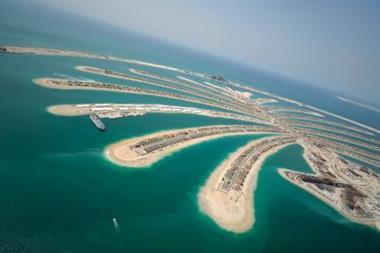Risk management is developing fast in the MENA but there are barriers to further growth. Senior risk managers in the region speak candidly about some of the challenges they face

The financial crisis has made MENA businesses aware of the need for serious governance and risk management strategies
Risk management is developing rapidly as a serious discipline and businesses in the MENA region are moving fast to embrace global standards.
Neal R Brendel, partner at law firm K&L Gates says: “Until recently, there was a sense that firms here were aware that it was important to pay lip service to the ideals of corporate governance but that there was very little actual infrastructure, such as codes of governance or even dedicated risk managers, to implement these aspirations.
“In the years since the financial crash, this area has been receiving much more serious attention. This was particularly obvious when the situation was difficult, and the big cash flows that had obscured some elements of bad practice were drying up.”
Speaking anonymously, one chief risk officer said: “Eight years ago, risk management was in its infancy. However, organisations have developed this a lot in the intervening period, even if problems still remain with board charters and board training and few organisations have proper business continuity. They may have a crisis management strategy, but in terms of how they recover afterwards they have little to go on.”
One of the main factors driving an increased awareness of risk management is that much of the region’s economic diversification has involved partnerships with US or European brands. When western companies come into the region, they require a certain level of risk management from the companies with which they deal.
“There is a building pressure on companies that want to partner with western brands that they will have to develop their approach to risk management,” says Paddy Lord, managing director at Control Risks.
As a result, regional businesses are becoming more and more sophisticated. However, this is a process that takes time, as well as serious investment in people and training. “Companies need to invest in more sophisticated staff and give them the mandate necessary to make their presence felt,” says Brendel.
“Businesses need to be talking to the kind of sophisticated brokers and risk advisers who can identify risks and suggest customised ways of addressing them.”
One of the biggest obstacles to change is the widespread lack of transparency. It can be hard for firms to determine who they are dealing with – and crucially whether they would be deemed a ‘government official’ according to the US’s Foreign Corrupt Practices Act (FCPA). “The US has expanded its jurisdiction in a lot of ways and this lack of transparency presents a real risk,” says Brendel.
Lord agrees. “Awareness is growing about the UK Bribery Act 2010 and FCPA, but there is still some way to go,” he says. “The level of litigation in the region is still low and companies usually prefer to reach a settlement before getting to court.”




















No comments yet